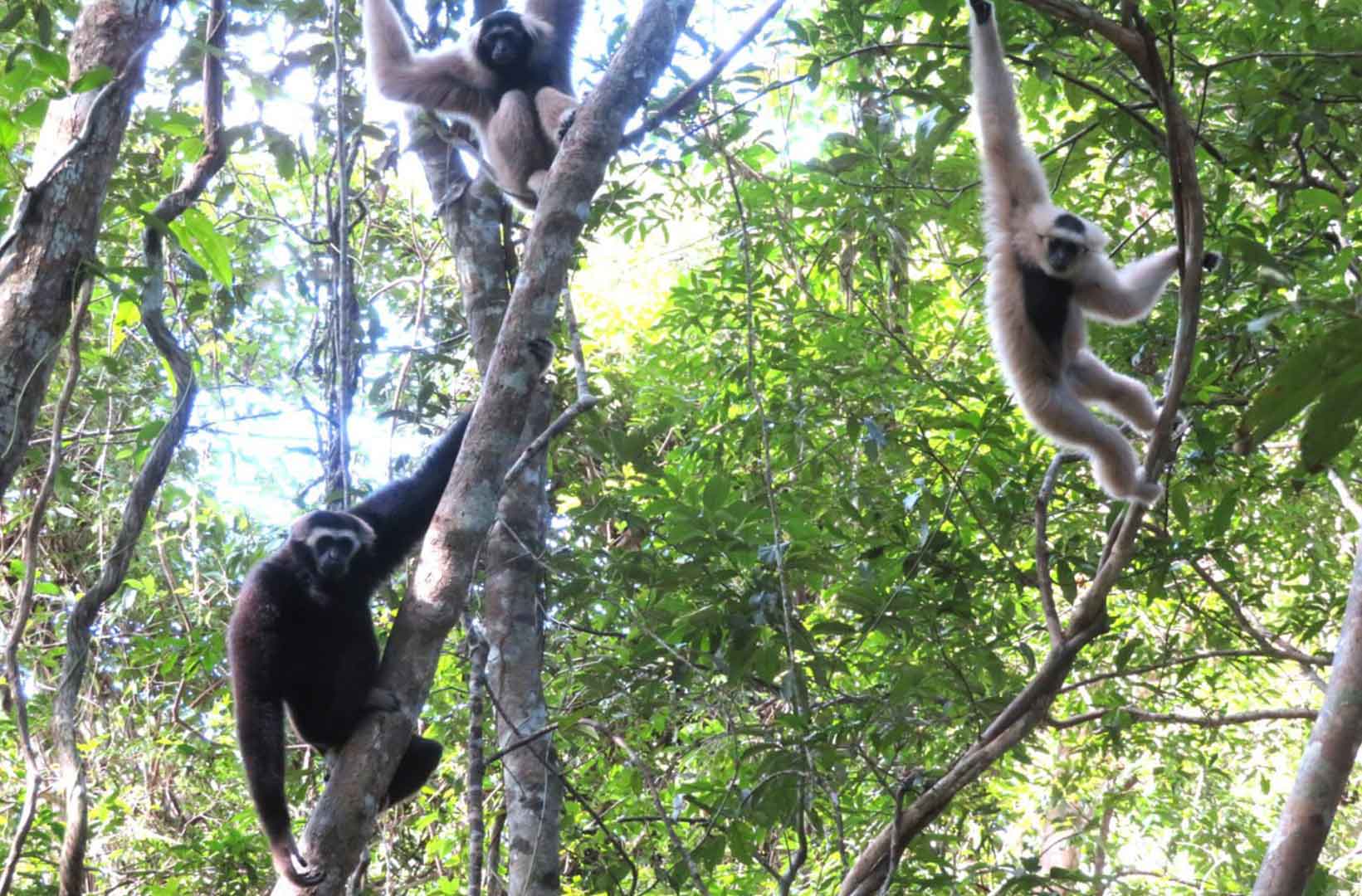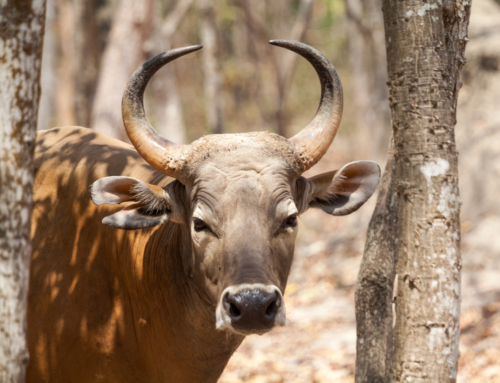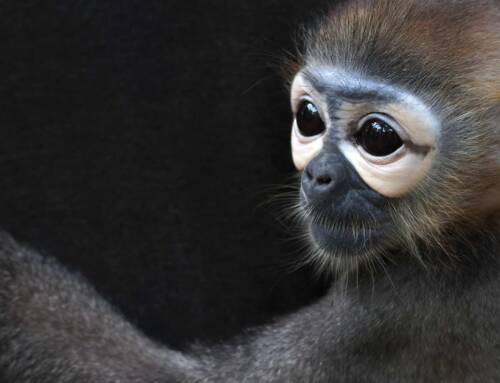In December of 2013 after six months in an acclimatization enclosure our first gibbon pair, Baray and Saranick, took their first tentative steps back into the wild when they were released at the Angkor Archeological Park. Fast forward 10 years and we have now successfully released four pairs of gibbons, which have gone on to have eight offspring between them. This October the 24th we celebrate International Gibbon Day and we can’t think of a better way to celebrate than the reintroduction to Angkor of these forest singers, the pileated gibbon.
The pileated gibbon (Hylobates pileatus) is an endangered ape that calls the tropical rainforest of Thailand, Lao People’s Democratic Republic, and Cambodia home. Pileated, coming from the fur coloration (black and white), and gibbon representing their unique method of locomotion, brachiation, and vocalisations are just some of the adaptations that characterize these acrobats of the forest. Famous for their duets, in which females sing one part and the males sing another, when combined declares their love (partnerships), and territories, to their surrounds and rivals. Literally spending their entire life in the tree tops, gibbons are the fastest non-flying arboreal mammals, reaching speeds of up to 35mph!
Their cousins, the Northern yellow-cheeked crested gibbon (Nomascus annamensis), have many of the same unique adaptions, however as their name suggests instead of black and white, they are black and yellow/gold. And this striking colouration is what sets them apart from other gibbon species. Found in Vietnam, Lao People’s Democratic Republic, and Cambodia this species is also endangered and facing the same threats as their pileated relatives.
Since 2015 we have celebrated International Gibbon Day on the 24th of October every year. The purpose of this day is to raise awareness of the many species of gibbon, of which there are approximately 20, to foster encouragement for their protection. Facing many challenges today in the wild, such as deforestation, habitat loss, and the illegal trade for pets, the Hylobatidae (gibbon) family needs our help now more than ever! You can help by ensuring vital gibbon habitat remains protected, or encouraging the development of new protected areas, reporting any illegal trade for pets or bushmeat to local authorities, and supporting ethical, sustainable tourism options to see these primates in the wild.
In December we will take a walk down memory lane as we go back to the first release at Angkor of Baray and Saranick, and all those who came to follow in their brave footsteps, on in the case of gibbons, arm swings.





